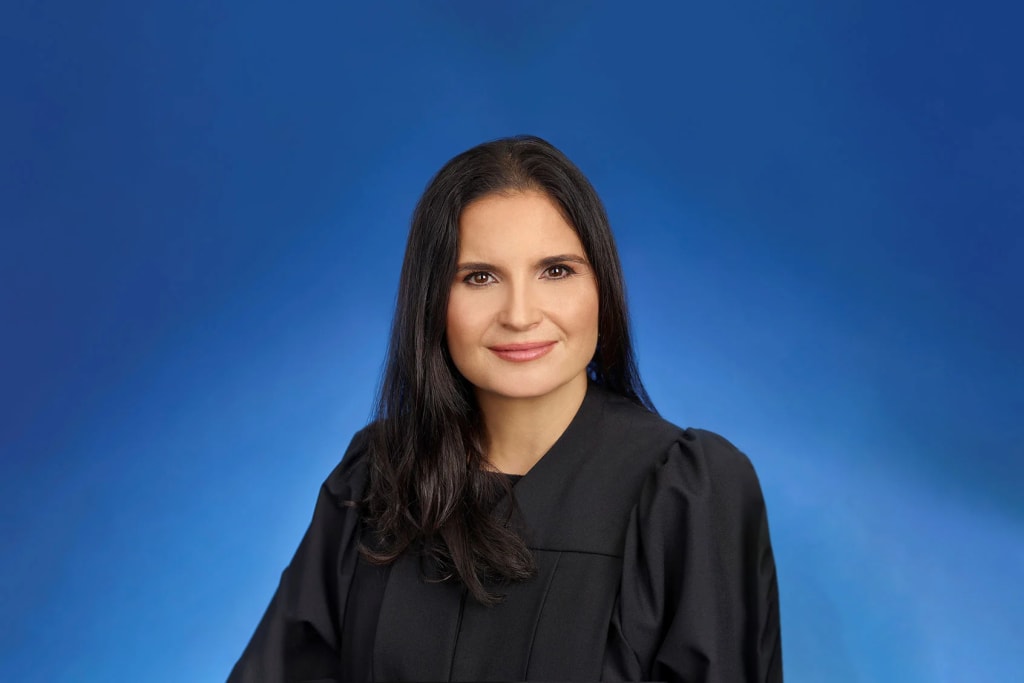
It's possible that the judge presiding over the case involving former President Donald Trump's classified documents took the necessary actions to keep her job.
Legal observers believe this after Trump appointee U.S. District Court Judge Aileen Cannon reversed herself on Tuesday, concurring that special counsel Jack Smith had been right and that the public does not, in fact, have a right to know the identities of those who may testify against the former president at this time.
"This is the bottom line," In a 24-page ruling, Cannon stated that since the case is still in the discovery stage, the "most faithful" interpretation of the law and prior decisions indicates that "this case is not subject to a public right of access." To put it another way, Trump won't have access to the names of Possibly two dozen government witnesses, so he'll need to come up with more material for Truth Social.
That is a significant change from two months ago.
When it came to declaring that there was a "strong presumption of in favor of public access" for disclosing documents that could identify witnesses in the case, Cannon sided with Trump's attorneys as well as a number of media outlets back in February. She stated unequivocally that "witness safety and intimidation” were not a concern, claiming that the special counsel had not proven that there was reason to believe that the former president and his allies would act as they have in almost every legal case.
Although the disclosure of such information was not immediately required by that ruling, it might have encouraged one witness, former Mar-a-Lago employee Brian Butler, to come forward with their on their own terms. He told CNN, "I think the American people have a right to know the facts, that this is not a witch hunt," implying that he had witnessed attempts on his own to conceal Trump's improper handling of sensitive national security data.
Others thought that Cannon would be removed from the case before any witnesses were actually outed, so no witnesses would actually be outed.
Composing for Slate, Former special counsel for the House Judiciary Committee Norm Eisen and former Senate Judiciary Committee law clerk Joshua Kolb contended that Cannon's decision in February had probably already decided her fate.They conjectured that the decision would ultimately be appealed by the special counsel to the U.S. Court of Appeals for the 11th Circuit, and they maintained that he would have sufficient grounds for requesting that she be taken out.
They stated that "this is a step that is warranted only in rare circumstances," such as when a judge committed a "clear error" that resulted in "manifest injustice." They went on, agreeing with Special Counsel Jack Smith that the decision was based on a "striking" misreading of case law. "In this instance, at Trump's behest, Cannon has decided to unseal the identities of two dozen potential witnesses, along with sensitive information they provided to the government," they said.
Cannon may have saved Smith's job by retracting her position and preventing her from possibly using the witness issue to argue she lacks the competence and impartiality to oversee a trial.
Harry Litman, the former US attorney, wrote on X that "she had nowhere to go." Smith had her put to death for going by Trump's instructions (and breaking [11th Circuit] law), so that or a specific appeal was required.
Legal experts speculated that this was the plan all along: take a long time to rule on Smith's request to reexamine the February order, grant the special counsel's request only after a two-month wait, and provide him with sufficient grounds to avoid an appeal.
Former U.S. Attorney Joyce Vance wrote on X, referencing Cannon's experience as a federal prosecutor and pointing out that "we've seen her do this repeatedly." "She is aware of the boundaries, the decisions that will lead to an appeal, and how to make decisions that will prevent that without ceding significant ground."
Indeed, even though Cannon concurred that the identities of witnesses should not be made public for She dismissed Smith's claims that their statements ought to be sealed as well, since they might be used to identify them in the future.
Former US attorney Randall Eliason, who teaches law at George Washington University, maintained that Cannon is a cynic who is skilled at her craft.
"Cannon prolongs the case to the maximum extent possible and then approaches the brink without providing Smith with any tangible evidence that he could present to the 11th Circuit," he wrote on X.
But the decision on Tuesday provided comfort to others. Ultimately, although it did not grant the special counsel all he desired, it was quite close.
Andrew Weissmann, the lead prosecutor in Robert Mueller's special counsel investigation, stated this as the "moral" of the Cannon story in a post on X: "She retreats in order to avert an appeal that might lead to her dismissal."





Comments
There are no comments for this story
Be the first to respond and start the conversation.